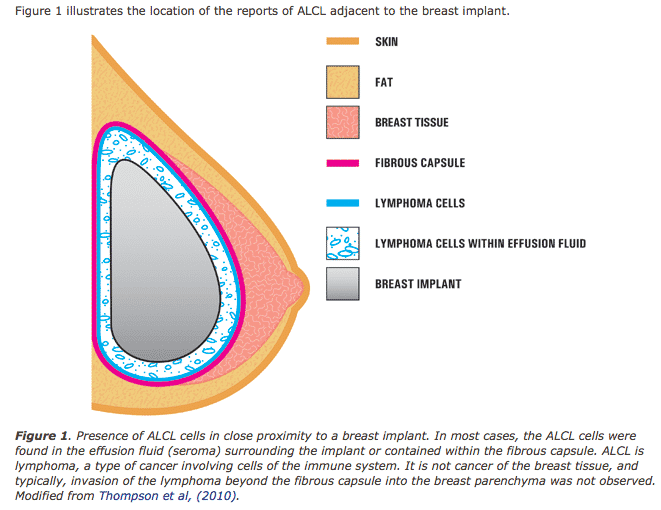
The death of a PIP breast implant patient from lymphoma has raised public concern about the safety of breast implants.
I'd like to clarify several points about the risk of lymphoma linked to breast implants.
Edwige Ligonese, a patient who wore PIP prostheses, sadly died as a result of anaplastic large-cell lymphoma of the breast.
This is a cancer of the lymph node cells that develops in contact with the breast implant's cavity.Treatment is primarily surgical, involving extensive removal of the implant and its cavity.Some cases may require post-operative chemotherapy and radiation.The disease is not fatal in most cases.
This is an EXTREMELY rare disease (fewer than 75 cases, including 6 fatalities, out of more than 10 million women with breast implants).
The silicone gel filling the prosthesis is not necessarily to blame, as saline-filled prostheses have been known to trigger this condition.
It would appear, although this is only a hypothesis, that the disease is favoured by micro-movements of prostheses with an excessively abrasive textured surface. This eventually leads to the formation of a seroma or fluid pocket in the prosthesis pocket (see diagram).
One way of preventing this risk would be to use smooth-walled prostheses (but with a capsule or shell risk of over 5%) or polyurethane foam-covered prostheses.
These allow the patient to integrate the prosthesis and prevent any micro-movement of the implant.
No cases of anaplastic large-cell lymphoma have been reported in patients with prostheses covered with polyurethane foam produced by the POLYTECH laboratory (source: POLYTECH laboratory).
This figure needs to be put into perspective by the fact that these prostheses are relatively rarely used worldwide, and that lymphoma is extremely rare.
However, these breast implants seem to me to offer the best long-term safety profile, and their price, which is twice as high as that of "standard" prostheses, should not be a limitation for patients wishing to undergo breast augmentation by prosthesis.
Find out more about the differentbreast augmentation techniques.
For further information:
- Press release from the French Society of Plastic Surgery
US FDA report on anaplastic giant cell lymphoma
- Polytech Health Laboratory
See our article on how to change a breast prosthesis.
See also our article on the price of breast augmentation by prosthesis.




